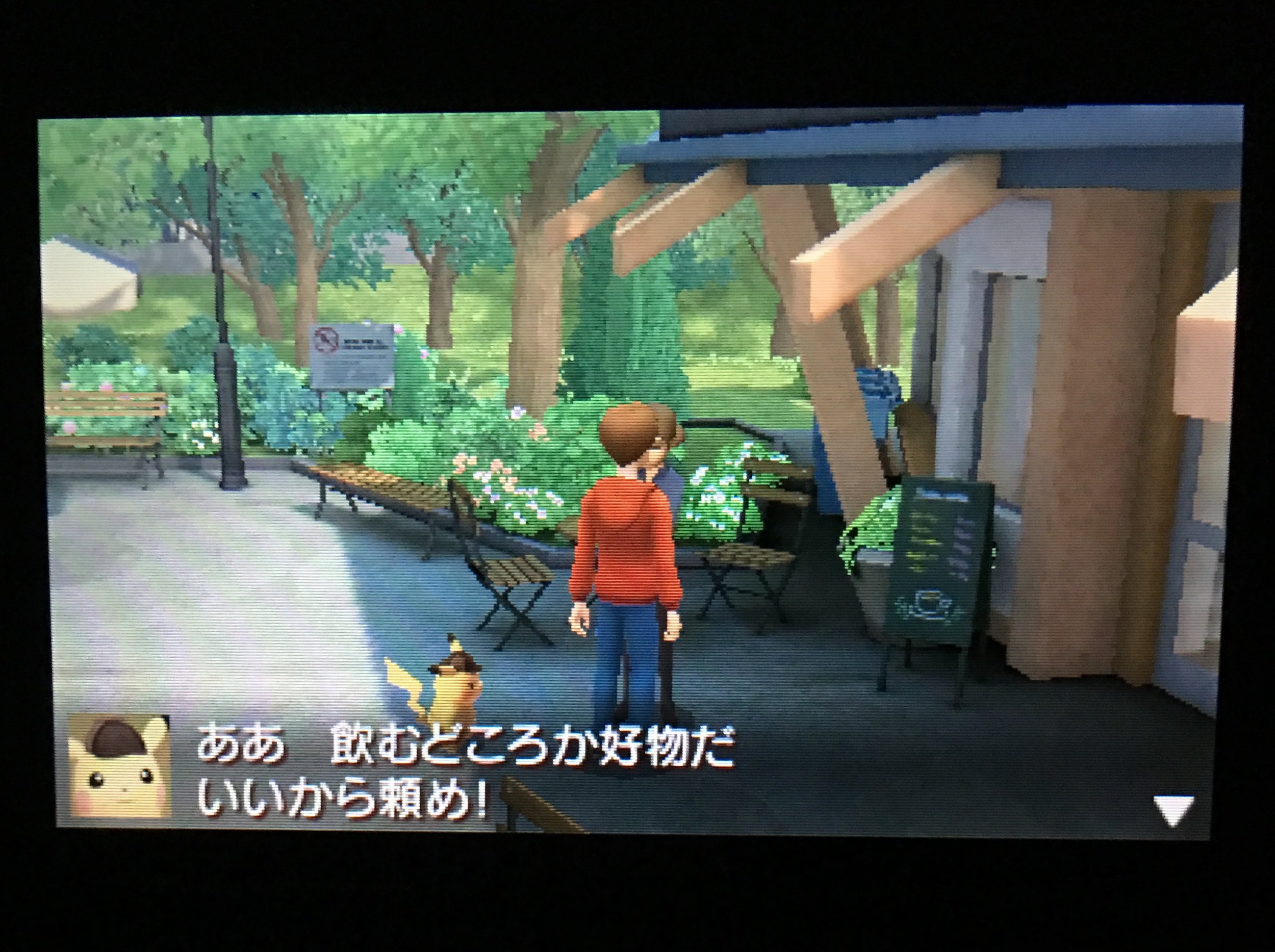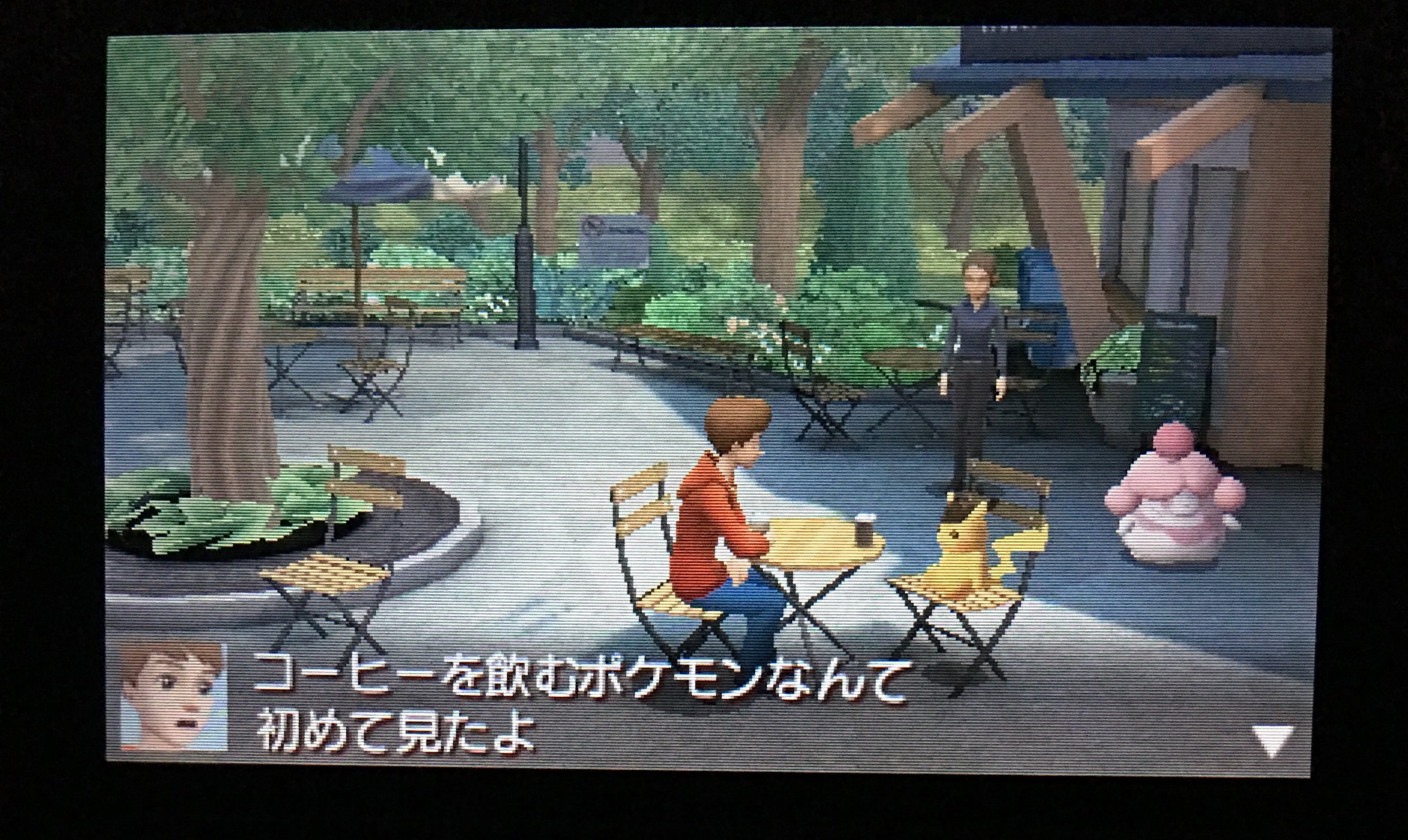In anticipation of the film, Detective Pikachu, which will be released in May 2019, fans of Pokémon turned to Twitter, celebrating the epic collab of Pikachu and what appears to be Sherlock Holmes through fan art, hilarious memes and even a countdown to the film. It was time for me to investigate what all this hype was about, so I finally played the video game.
Hurray! Christmas came a little early this year!
Detective Pikachu was released in North America on March 23, 2018, which was a little over two years after the game was released in Japan. It was developed by Creatures Inc., and made for the Nintendo 3Ds, although you can’t play the game in 3D mode... (T_T)
Without giving too much away, the game begins with a boy protagonist named Tim Goodman who travels to Ryme City to investigate the mystery behind his father’s disappearance. His father, Harry, was a detective who went missing after a car accident during one his investigations. Tim joins forces with his father’s partner, Pikachu, who miraculously survived the accident but has no recollection of it, and seems to have lost his thunderbolt powers. It’s hinted at throughout the game that something about detective Pikachu isn’t the same as before. What happened to Pikachu? Where did Harry go? And what’s the connection between the accident and the rise of violent pokémon that threaten the pokémon world order? To answer these questions, you’ll have to play the game where you’ll work alongside Pikachu to solve a series of mysteries that’ll lead you one step closer to uncovering the truth about Harry’s disappearance and the strange case that he was investigating.
The game itself is pretty entertaining although it’s mainly targeted for a child player. As a result, the mysteries are incredibly easy to solve and luckily, I was able to clear the game in two nights. I was disappointed at the fact that Tim is the only playable avatar and it’s too bad that there’s no option to pair detective Pikachu with other characters in the game.
Detective Pikachu is marketed as an action/adventure game on Nintendo’s official website, but it goes without saying that the cover of the game, which invokes an image of Sherlock Holmes is a telltale sign of it also being a mystery (not to mention the word Detective gives it away as well). Pikachu’s attire—his deerstalker cap, cape and magnifying glass—might suggest that the game adapts Conan Doyle’s Victorian sleuth, but I think it makes deceptive use of a British pop culture icon with superficial attachment to the original character. In fact, Pikachu himself comes across as a character who should be dressed in a fedora and trench coat like Sam Spade as the game playfully renders elements of the hardboiled detective fiction genre. Pikachu’s “tough” image, indicated by his preference for black coffee, his attraction to beautiful women, his unusual low, husky voice and his use of colloquial Japanese all pay homage to an image of the hardboiled detective and not necessarily that of the gentleman detective, Holmes.
Although the game seems to invoke qualities of the hardboiled in the characterization of detective Pikachu, it steers away from a world that is defined by cynicism and violence, which is quintessential to the hardboiled genre of detective fiction. This is probably because the game is rated “E” and therefore has to keep content kid-friendly. Consequently, this results in a strange, but interesting blend of tropes and conventions from both the hardboiled and classic genres of detective fiction. For example, detective Pikachu is unlike the typical hardboiled detective who often works alone and is depicted as the story’s anti-hero. In fact, the lone wolf detective character type is replaced with the dynamic duo Pikachu and Tim, and this pairing is reminiscent of Sherlock Holmes and Watson to some degree. Throughout the game, detective Pikachu guides the player to make correct deductions whereas Tim keeps hand drawn records of the crime scene, which is similar to how Watson kept a written record of his adventures with Holmes—though I’d argue that Tim is far more involved in the actual investigative process than Watson is in Doyle’s stories.
I think the creators of the game had some awareness of the world of Sherlock Holmes and its television franchise. Names of places such as Baker Detective Agency and the jingle at the beginning of the game, which reminded me of the soundtrack used in BBC’s Sherlock, are but two ways that Detective Pikachu repurposes canonical material and popular adaptations of Doyle’s Sherlock Holmes. At the same time, and to put it bluntly, the Pokemon/Pikachu and Sherlock Holmes mashup is profitable because it brings together two pop culture icons from the East and West, and it’s clear that the game utilizes the iconic image of Holmes as a major selling point but transforms the character of Sherlock Holmes beyond recognition—and perhaps for good reason—so as to avoid having to secure copyright permission with The Conan Doyle Estate (?).
Aside from this issue, the most memorable thing about the game by far, for me, was Pikachu who is a coffee connoisseur and lover of sweets. If pokémon were to exist in this world, then, I’d definitely search far and wide for a detective Pikachu. One of the things I really like about the game is how the cute, little Pikachu that I remember from the original Pokémon series is transformed into an おっさんキャラ (ossan kyara: old man character type) who loves coffee, sweets and not to mention beautiful women. While I’m not surprised about the representation of most women in the game, I found Pikachu’s love for coffee and sweets quite relatable. I love how at the end the game, you can access the gallery of “Pikachu’s Coffee Memo” and replay selected chapters of the game to collect them all! If anything, I learned some valuable lessons about how to enjoy my coffee.
“Ha— —!! Shadow clone!” …. wrong anime Pikachu lol
If I was asked to rate this game out of five stars, I’d give it a 5/5. The story is compelling, the gameplay is fairly easy and I love how Pikachu is revised in slightly humorous and unexpected ways.



